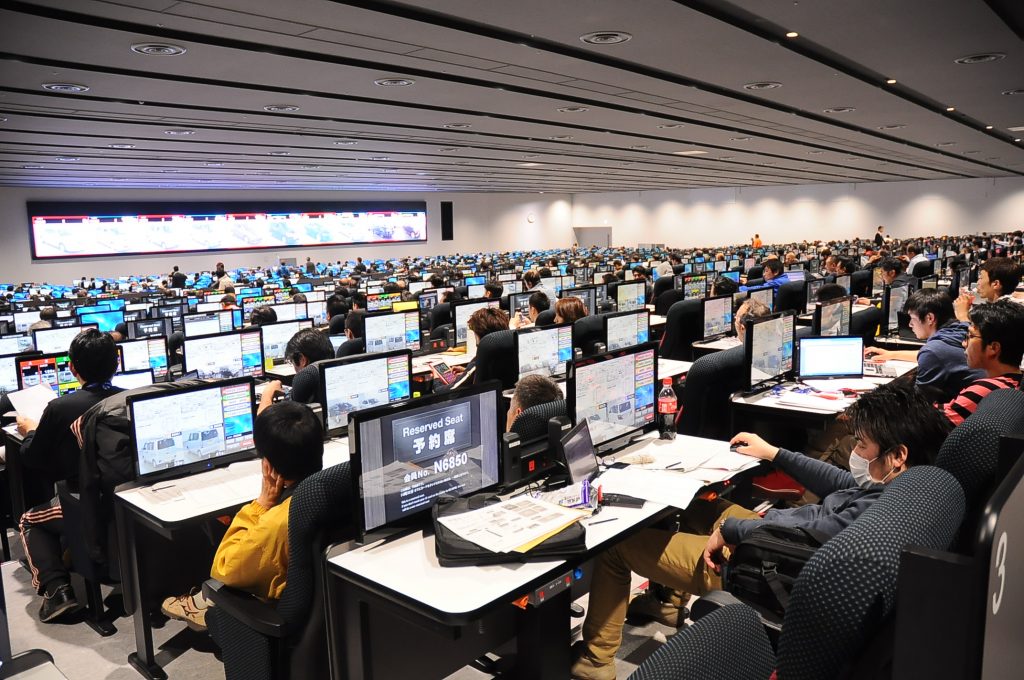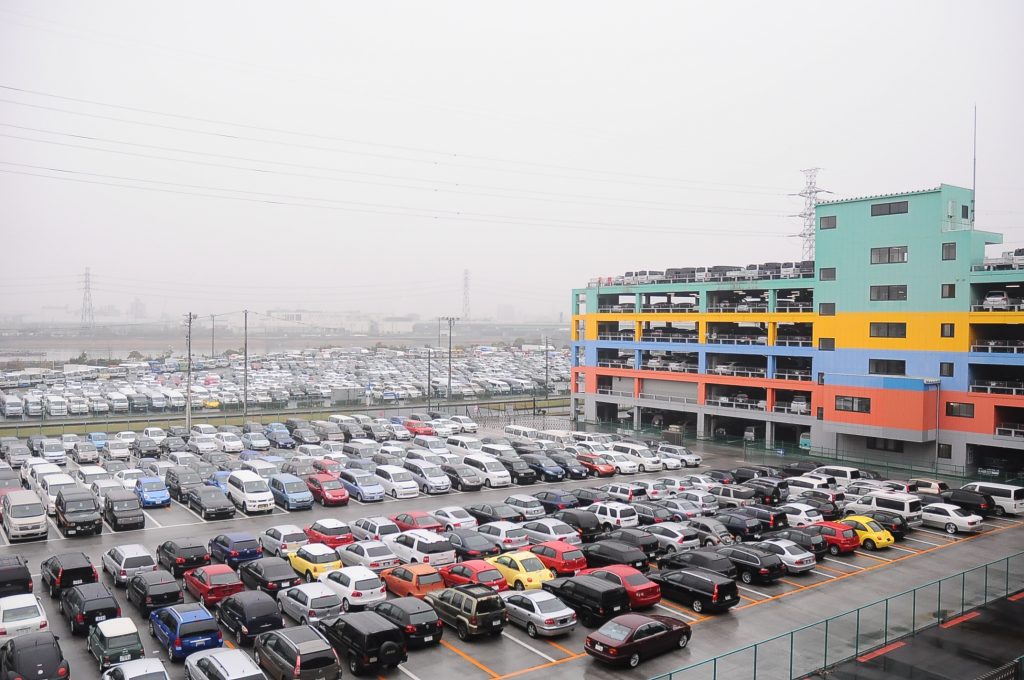Japanese Used Car Auctions: The Advantages and Disadvantages
Car auctions in Japan are the most popular way of selling and buying cars. From the total number of cars being sold at the Japanese Auto Auctions, the vast majority are used cars. The Japanese Government has been encouraging owners of motor vehicles to buy new and ecologically friendly new cars thus pushing owners to sell their old cars.
A modified GT-R R34 auctioned at USS Nagoya Auction House
In 2013, the Japanese owned over 80 million motor vehicles [1] per 61 million of the population aged 15-64 years old; meaning that every single adult owns about 1.4 cars. Although knowing that there are a big number of motor vehicles being owned in the relatively small territory of Japan, selling and purchases of used cars from Japanese Auto Auctions have been the most quick and efficient method.
On an average some 20,000 motor vehicles per day are available from Japanese Auto Auctions; and numbers may vary from 9,000 to 56,000 motor vehicles[2] depending on the day of the week. The largest Auction Houses are USS Tokyo, USS Yokohama and USS Nagoya.
USS Nagoya Auction House. Bidding Room
Advantages of Japanese Cars Auctions
It is efficient and cost effective. Why efficient? That’s because it is arguably the largest used vehicles marketplace on the planet. Over 180,000 cars are taken to the auctions around the country every week that comprise a complete variety of models being manufactured in Japan with the addition of numerous models of foreign make . One of the big advantages – you can always find what you want and accommodate your budget according to the numerous specs variation of the pre-owned vehicle of your interest. The rules of the market are the same in Japan: Low mileage, no accident history and newer pre-owned cars will be selling at a premium price. The opposite will be high mileage, accident-repaired and older cars will be selling at the bottom of the market price. Basically if you have a realistic budget – you are sure to match it with the corresponding condition and other specs of the used car you are searching for.
USS Nagoya Auction House stocks
Auction Mileage verification system. Only few commercial organizations have access to the closed and carefully guarded system that ensures that pre-owned vehicles sold at the auctions have genuine mileages displayed. This system checks both the extensive auction history data and maintenance records at the dealerships which record mileages when maintenance and repairs are done.
Mazda RX-7 being verified by auction officers at USS Nagoya
Auction grading and inspection. Unlike US and EU auctions, Japanese auction systems provide a detailed description of the vehicle condition based on the assessment done by a full time professional working for the auction house. It is in the auction house’s interest to make sure that that the description is as accurate as possible in order to prevent claims due to vehicle condition after the car is sold. It is a rule that a detailed condition remarks are followed with the auction grade (depicting general condition) and depending on the auction house – auction grade for exterior and interior condition
Disadvantages of Japanese Cars Auctions
While the auction system in Japan is a benefit for both sellers and buyers, it doesn’t guarantee a perfect used car for a buyer. Each Auction House has its own grading approach for the specific car to be sold at the auction. The same car graded as a car in a good condition (4 in Japanese grading system) in very humid prefectures can be graded as a car in a satisfactory (3.5 in Japanese grading system) condition in Kansai area.
Verification on engine performance, transmission and suspension is made during a 15-20 minute assessment at the auction house. Major flaws are pointed out immediately; however smaller problems may come up only later on. There are limitations to what auction houses guarantees in terms of working condition of each major component in the vehicle. These limitations are different from auction to auction which make the process of returning the vehicle to the auction (in case of a technical flaw that was not reported) a very time consuming task.
Another issue would be the time needed to learn the auction system itself; its peculiarities and process to follow in order to complete a purchase at the car auction. Japan Partner offers two ways on how to participate at the auction:
1. You can tell us the model and make of the car you are interested in, so we can search and purchase the quality used Japanese car within your budget.
2. You can choose the used car to be purchased using our auction system and put your own bids in order to buy it.
IF YOU WOULD LIKE TO PARTICIPATE IN THE AUCTION THROUGH OUR COMPANY PLEASE VISIT this web-site for more information:
http://www.japan-partner.com/auction-service.php
You can send us an email at info@japan-partner.com or call our office in Nagoya, Japan at +81-567-94-0015.
[1] Statistical Handbook of Japan 2014 by Statistics Bureau, Japan page 100, table9.2.
[2]On February 17.2015 there were 22,590 motor vehicles available from the auctions.









Good points and probably based on my experience it is good to both buy from the auctions and buy used japanese cars from local dealers from their stock. Sometimes you can find a good deal buying from the stock however going direct to japanese used cars auction will give you wider choice of the desired vehicles
Auction system in Japan is pretty high tech compared with the USA, car description is pretty good and mileage is verified with several sources. Definitely would recommend to dealers to use it
i am interested in acquiring an excavator for uganda. will you be able to assist? please email me at ougqrvpp@gmail.com -franz
I create a comment when I like a article on a blog or I
have something to contribute to the conversation. Usually it’s caused by the sincerness displayed in the article
I browsed. And after this article Japanese Used Car Auctions: The Advantages and
Disadvantages | Japan Partner Blog. I was actually moved
enough to leave a commenta response ;-) I
actually do have some questions for you if you tend not to
mind. Is it just me or does it look like a few of these remarks look as if they are coming from brain dead folks?
:-P And, if you are posting at additional social sites, I would like to keep up with everything fresh you have to post.
Could you make a list every one of all your social pages like
your linkedin profile, Facebook page or twitter feed?